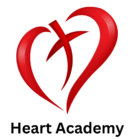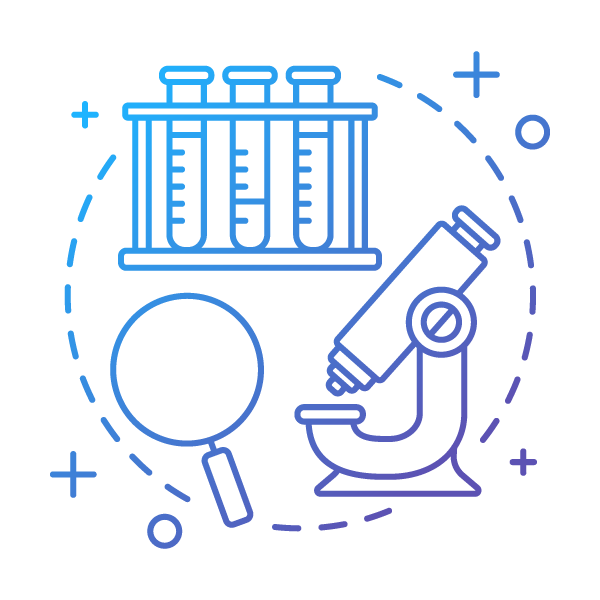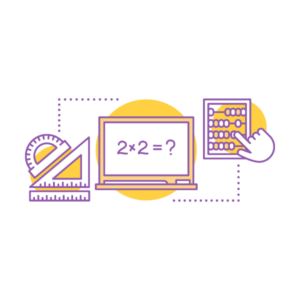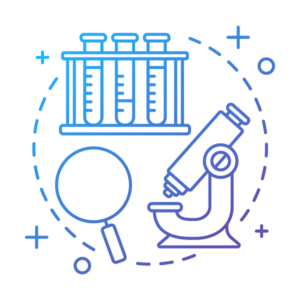Instructor: Denise Boiko
Course Title: Advanced Biology with Lab (Honors)
Course Length: Two Semesters
Type of Class: Group class through HEART Academy
When: Fridays, 1:45-3:00, Period 4
Cost: $75/month
Credit Classification: 10 credits, Lab Science
Lab Fee: $30 one time only
Minimum & Maximum Class Size: 8 and 17
Questions: Email Denise Boiko
Prerequisite: A previous high school level biology course.
IMPORTANT NOTES: A second stated prerequisite for this course, according to the textbook author, is a high school chemistry course. However, students will not need to have had chemistry to enroll in this course at HEART. Applicable chemistry concepts will be explained as we go along. Additionally, please note that we will be using the 2nd edition Apologia textbook (see below).
This course, while very advanced, is not a College Board-approved AP (Advanced Placement) course. Advanced Biology students may choose to do additional self-study in order to prepare for the AP exam. This extra study would involve having access to an approved AP Biology textbook and a few online resources, purchasing an AP Prep guide such as CliffsAP, and studying topics that are not covered in the Apologia Advanced Biology textbook. The Apologia course is specifically an anatomy and physiology course; the AP Biology exam covers a much broader set of biological topics. Although we do not have sufficient class time for AP Biology topics, I would be happy to provide guidance to students interested in additional self-study.
Other Prerequisite:
Use of basic technology applications (word processing applications, email, internet).
A willingness to learn how to apply a Christian world view in biology.
In addition to class time, this subject will require a workload of a minimum of one hour a day, five days a week, and most likely more. This is a rigorous honors course with a great deal of memorization and understanding of concepts, so students should be very strong in their biology skills and general study skills.
Course Description:
This advanced course provides an in-depth study of the elegant design of the human body. Covering the anatomy and physiology of the human body’s 11 organ systems in detail, this course, combined with its prerequisite standard biology course, is equivalent to a first year college course in biology. Using both microscopic and gross anatomy techniques, students will delve into the wonders of the human body and its workings.
Honors credit:
The course is by default an honors course because of its rigor.
Topics to Be Covered:
16 modules (chapters) paced at approximately one module per two weeks:
- 1st Quarter: Organizational Overview and Review, Histology, Skin and Bones, Skeletal System Histology and Movement
- 2nd Quarter: Muscle Histology and Physiology, Skeletal Muscle System, Nervous System: Neurons and Neuroglia, Central Nervous System
- 3rd Quarter: Peripheral Nervous System, Endocrine System, Circulatory System, Lymphatic System
- 4th Quarter: Digestive System, Respiratory System, Urinary System, Reproductive System
Dissections include a cow’s eye, a sheep’s heart, and a fetal pig. Other labs involve microscopic analysis of blood, bone, muscle, skin, bone marrow, lung, and other specimens. Additional labs, including blood typing, will add to the interest of this course.
Note: HEART classes will be on break during the holidays, from before Thanksgiving until just after New Year’s Day. In order to stay caught up in your textbook, you will have some assigned reading and some written homework during this time.
Class Expectations:
- Attendance and punctuality (very important, since we meet only once a week). Please be in class on time, ready to start, and prepared for the day’s material.
- LISTENING to instructions given in class and FOLLOWING DIRECTIONS. This will save time and energy for all of us and is extremely important for safety and for good performance in the class.
- Participation in discussion. We will review the chapter in class to prepare for the test.
- Participation in lab and turning in lab reports.
- Completing other assigned homework (on time) such as study guides and On Your Own questions. Specific assignments will be given weekly by email and by handout. Please stay caught up!
- You will study on your own with your parent’s help as needed during the week. This will involve reading the chapter, possibly performing some household-based labs and reporting back during class, answering On Your Own Questions, Study Guides, and studying for tests.
- Tests will be completed at home and proctored and scored by parent. Since biological concepts continually build on important previous material, parents may choose to allow the student to take the test a second time if mastery has not been achieved on the first administration of the test. We can also discuss other ways to help the student assimilate the material.
My commitment as your Mentor-Teacher is to provide instruction and encouragement to you, supervise laboratory experiments during class time, review the chapter material in class before the tests, and grade or evaluate your work. I will be available to help you develop skills in scientific observation and analysis, and in understanding the complex concepts we will be learning. Please feel free to come to me with questions or email me during the week, so that this can be a team effort in learning together!
An assignment sheet will be made available every few weeks for the upcoming set of assignments. It is designed as a communication device for you, to clarify your weekly work process and help you focus on the topics we are discussing in class. Please read each week’s assignment at the beginning of the week and use it as a working guide. Once you have read the assignment sheet, please store it in your binder for future reference.
Laboratory Exercises: Advanced Biology: The Human Body contains three types of laboratory exercises:
- Household labs – Only household equipment is used. Some of these will be done in class, and others may be done at home (either required, or for extra credit), with the results shared in class.
- Microscope labs – Require a microscope and slide set (will always be done in class).
- Dissection labs – Require a dissection kit (will always be done in class).
Materials: A few very common household materials may occasionally be requested from you and your family. We will be performing the microscope and dissection labs in class. We will be purchasing equipment and specimens in order to have a ratio of approximately three students per microscope and dissection kit. Your lab fee of $30 will be paid at the beginning of the school year.
If you miss a lab due to an excused absence, the lab generally cannot be made up due to equipment considerations, though sometimes we can try to make arrangements for you to catch up during the next week’s class. Alternate activities may be assigned if you miss more than two or three labs.
Handing in Assignments:
Assignments are due at the beginning of class. All work should be done neatly and reflect your best efforts. Messy work or work that cannot be understood will be subject to a penalty or considered wrong and worth no credit. Strive for excellence and do your best work. Extra credit will be available for students who need to enhance their grades.
Bring to class every day:
1. A folder or small binder with pocket folders, to contain handouts and to store your graded and ungraded written work. Have a few sheets of college-ruled paper handy for note taking.
2. A 3-ring binder with spine size about 1½” to 2”. This will be the lab notebook, and will periodically be turned in for grading. Insert two plastic sheet protectors at the front to store lab writeup instructions and drawing instructions. Have a supply of lined paper and plain white paper in the binder, for lab reports and drawings.
3. Sharp pencils with good erasers. Mechanical pencils are useful.
4. Pen.
5. 6” ruler for drawing straight lines for labels on lab drawings.
6. Colored pencils for biological drawings and coloring book (at least 6 colors).
7. Zippered pocket for pencils, erasers, etc. (place this in your main binder which stays with you and doesn’t get turned in).
8. Textbook.
Workload:
On Your Own Questions – These are to be answered as you come to them in the reading of the module, and kept in a labeled section of your notebook. Start each new module on a new sheet of paper.
Experiments – All experiments will be done on Fridays, along with a review of the module. Occasionally, experiments involving only household materials will be done at home.
Study Guides – These should be done in writing or typed on the computer, neatly and completely, at the end of each module. They should be used to help you study for the upcoming test and will be turned in with the test.
Tests – A module test will be done every two weeks to evaluate your learning. Tests will be completed at home, proctored by the parent, and turned in to Mentor-Teacher during the next class, to be graded and recorded. Tests may be typed or handwritten. Tests should be done “closed book” unless otherwise instructed.
Lab Writeups and Drawings – Each lab experiment will require either a short writeup (hypothesis, materials, results, analysis, conclusion), neatly labeled drawings, or both. Writeups and drawings will be filed in a lab notebook to be turned in for grading periodically.
Anatomy Coloring Book (OPTIONAL; most students choose not to do it as it is extremely time-intensive)– This learning tool encourages focused concentration on one portion of the human body at a time, through coloring the diagrams found in this book. Coloring book pages will augment the student’s semester test score average by up to 5%; coloring is not required if the student chooses not to do it.
Research Papers and Presentations—During the first semester, each student will prepare one 4-page research paper on a previously selected disease or disorder relating to the body systems we have been studying. At the end of the second semester, students will present a 5-10 minute class presentation on this same topic to educate classmates about this disorder.
Grading and Assessment:
Parent involvement in discussion and evaluation of student’s work is a priority. Parents will score each module test before the student turns it in, and teacher will double check the scoring, sometimes allowing more points or partial credit. I will be available to parents as needed, to assist in evaluating performance against priorities, to answer questions, or simply to be a sounding board for discussion. I want to do everything I can to assist you in this endeavor.
A teacher-created evaluation will be provided for every student, which may be used as a record of accomplishment for students planning to attend college, and as an aid to help parents ascertain grades for report cards. All evaluations include the number of tests, homework, labs, and other assignments completed, a description of challenges and accomplishments, a review of student’s progress and performance, test scores, and recommendations for future work. The student name and course, date of completion and Mentor-Teacher signature are also included. While parents assign the actual letter grade, this evaluation will be an individualized assessment of the student’s progress and effort, and will be helpful in assigning the grade. The basis for this assessment will be the following items:
Tests: 55%
Performance on tests (usually closed book, proctored and graded by parent but reviewed also by teacher). Partial credit is given for partially correct answers.
Homework: 20%
Completeness (not necessarily correctness) of study guides, research reports and presentations, and OYO questions.
Lab: 25%
Effort, enthusiasm, and performance during the lab experiments. Student will also be evaluated on preparation, participation and attitude in class.
Neatness and thoroughness of lab writeups in lab notebook .
Maintenance of lab notebook as directed.
Extra credit, as applicable
Extra labeled drawings, current events, book reports, optional lab experiments, coloring book, and other extra efforts in the class.
Curriculum:
(REQUIRED)
Advanced Biology: The Human Body, 2nd edition by Marilyn M. Shannon and Rachael L. Yunis, Apologia Educational Ministries, 2013. ISBN 978-1935495727 for textbook.
ISBN 978-1935495970 for Solutions and Tests book.
Packaged on Apologia website as “Basic Set.” (Do not order the “Advantage” set that has the spiral bound student notebook).
2 volume set: The first book, hardbound, is the student text, which contains all student material, On Your Own questions and solutions, laboratory exercises chapter study guides, color illustrations and diagrams. The second book, softbound, is the solutions and tests manual, which contains answers to chapter study guides, tests, and test solutions (B&W). Available from apologia.com, CBD, Home Science Tools, or Lifelong Learning Resources (www.homeschooldiscountproducts.com).
(OPTIONAL/time consuming) Kaplan Anatomy Coloring Book, 4th edition, by Stephanie McCann and Eric Wise. Learning anatomy and systems of the body is often a difficult task for students at any educational level. One effective method students often use to retain complex information is to practice the kinesthetic learning method. Students of all types—medical school students, physical therapists and even art students use anatomical coloring guides to help supplement their training. With the Kaplan Anatomy Coloring Book, students will benefit from realistic illustrations, key word reviews, explanatory paragraphs, and the highest level of accuracy an anatomical guide can provide. Available from Apologia and other sources. ISBN 978-1419550409.
Note: Coloring book work will add onto student’s score for tests or lab, and thus will enhance the score but will not detract from it if the student chooses not to do the coloring book work. Thus, it is a method of obtaining extra credit, for students who would enjoy coloring the structures being studied in each module. This coloring is quite detailed and time-intensive, so not every student will choose to do this work.
OPTIONAL:
(For students interested in preparing on their own for the SAT Subject Test in Biology):
SAT Biology prep book (Barron’s or other publisher) or CliffsAP for AP and/or SAT prep.
OPTIONAL:
Apologia offers the following versions and enhancements of the course. Check the Apologia website at www.apologia.com for descriptions and prices. (None of these items is essential for the HEART course.)
A CD-ROM version of this course (book on CD—not an audio version) which contains everything that is in the textbook course plus multimedia add-ons such as word pronunciations, videos, and animations.
An MP3 Audio CD with the audio of the student text being read aloud.
A Multimedia Companion CD with word pronunciations short videos, and animations.
Website: www.apologia.com
This site contains helpful hints and links for the parent and student which can aid in your study of the subject.
Contacting the Teacher:
The best way to contact Mrs. Boiko is via email at dboiko12@gmail.com. The next best way is by phone at (408)375-5189.
Assignments for the first week: (to be completed prior to the first class)
Parents:
Read course expectations from this document, pages v-vii in textbook, and pages vii-viii in the Solutions and Tests Book. Be ready to go over the handouts I give the students on the first day of class.
Students:
1. Read Module 1 in textbook, as well as pages v-vii.
2. Do all On Your Own questions 1.1-1.13 on notebook paper, and file in the OYO Questions section of your notebook.
3. Start completing Study Guide for Module 1.
4. Carefully read the course expectations from this current document (Advanced Biology Class Information). On the first day of class I will be giving you several handouts. Be prepared to go over these with your parents.





